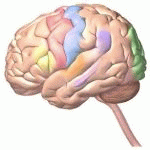Neurology
|
25 april 2012 03:04:00 |
| Inducible nitric oxide synthase is involved in the modulation of depressive behaviors induced by unpredictable chronic mild stress (Journal of Neuroinflammation) |
|
Tweet Background:
Experiences and inflammatory mediators are fundamental in the provocation of major depressive disorders (MDDs). We investigated the roles and mechanisms of inducible nitric oxide synthase (iNOS) in stress-induced depression.
Methods:
We used a depressive-like state mouse model induced by unpredictable chronic mild stress (UCMS). Depressive-like behaviors were evaluated after 4 weeks of UCMS, in the presence and absence of the iNOS inhibitor N-(3-(aminomethyl)benzyl)acetamidine (1400W) compared with the control group. Immunohistochemistry was used to check the loss of Nissl bodies in cerebral cortex neurons. The levels of iNOS mRNA expression in the cortex and nitrites in the plasma were measured with real-time reverse transcription PCR (RT-PCR) and Griess reagent respectively.
Results:
Results showed that the 4-week UCMS significantly induced depressive-like behaviors, including decreased sucrose preference in a sucrose preference test, increased duration of immobility in a forced swim test, and decreased hole-searching time in a locomotor activity test. Meanwhile, in the locomotor activity test, UCMS had no effect on normal locomotor activities, such as resting time, active time and total travel distance. Furthermore, the levels of iNOS mRNA expression in the cortex and nitrites in the plasma of UCMS-exposed mice were significantly increased compared with that of the control group. Neurons of cerebral cortex in UCMS-exposed mice were shrunken with dark staining, together with loss of Nissl bodies. The above-mentioned stress-related depressive-like behaviors, increase of iNOS mRNA expression in the cortex and nitrites in the plasma, and neuron damage, could be abrogated remarkably by pretreating the mice with an iNOS inhibitor (1400W). Moreover, neurons with abundant Nissl bodies were significantly increased in the 1400W + UCMS group.
Conclusions:
These results support the notion that stress-related NO (derived from iNOS) may contribute to depressive-like behaviors in a mouse model, potentially concurrent with neurodegenerative effects within the cerebral cortex. |
| 200 viewsCategory: Neurology |
 Etiology of autistic features: the persisting neurotoxic effects of propionic acid (Journal of Neuroinflammation) Etiology of autistic features: the persisting neurotoxic effects of propionic acid (Journal of Neuroinflammation)Visualisation of cerebrospinal fluid flow patterns in albino Xenopus larvae in vivo (Cerebrospinal Fluid Research) 
|
| blog comments powered by Disqus |
MyJournals.org
The latest issues of all your favorite science journals on one page
The latest issues of all your favorite science journals on one page



